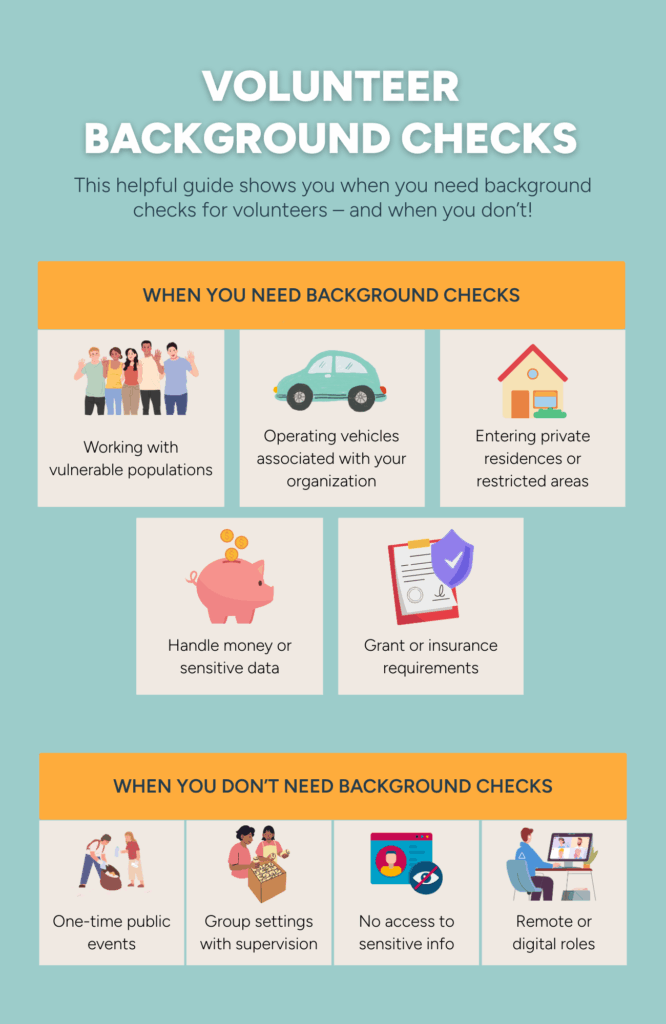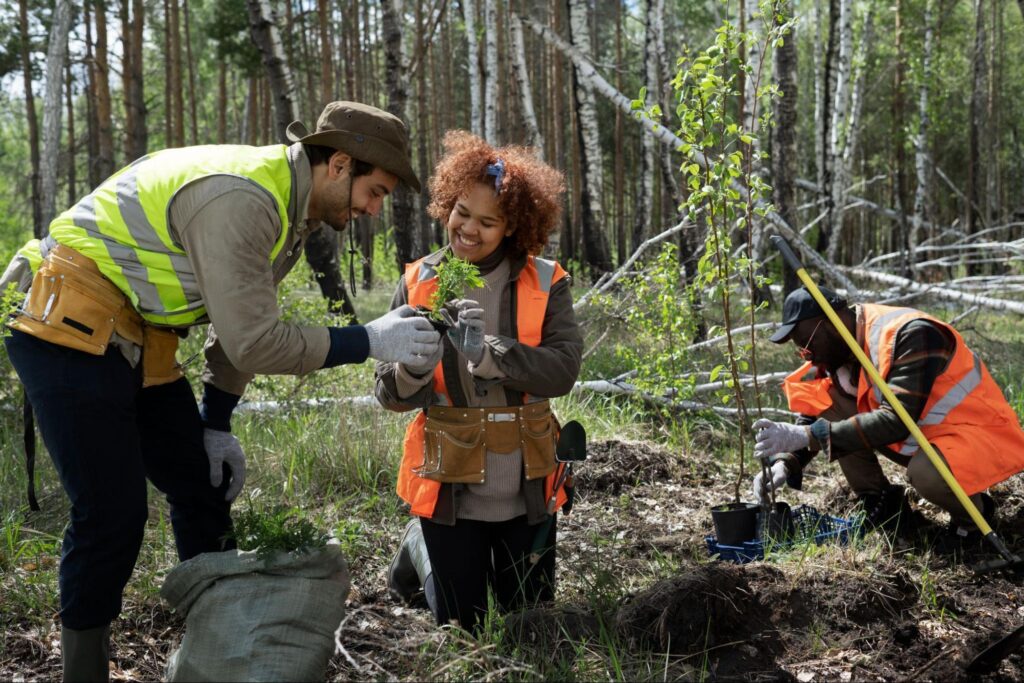Background checks keep volunteer programs safe and compliant, but they’re not always needed. Use risk-based screening—checks for high-responsibility roles, lighter onboarding for low-risk roles—to balance safety with accessibility. Always explain the “why” and respect privacy.
Volunteer Background Checks: When You Need Them (and When You Don’t)
Volunteer programs thrive on trust, safety, and a shared commitment to a cause. But when it comes to volunteer background checks, many coordinators face a delicate balancing act: how to ensure safety without deterring great people from getting involved.
This guide breaks down when background checks are necessary, when they’re optional, and how to implement them in a way that keeps your program secure without making it feel like a security checkpoint.
Why Background Checks Matter
A volunteer background check is more than a formality—it’s a safeguard. They help nonprofits and community programs:
- Protect vulnerable populations (children, seniors, or individuals with disabilities)
- Reduce liability risks
- Build public trust in your organization
- Ensure compliance with insurance and funding requirements
As Charitable Allies notes, a background check can be an essential piece of due diligence when volunteers have access to sensitive information, money, or people in vulnerable situations.
When Volunteers Need Background Checks

Not every volunteer role carries the same level of risk. Consider requiring a check when a volunteer will:
- Work Directly with Vulnerable Populations: This includes tutoring children, assisting at elder care facilities, or supporting people with disabilities.
- Handle Money or Sensitive Data: Roles like treasurer, fundraiser, or database manager may warrant a criminal or financial history check.
- Operate Vehicles for Your Organization: Driving background checks (MVR reports) are often legally required for transportation-related roles.
- Enter Private Residences or Restricted Areas: If volunteers go door-to-door, visit homes, or work in secure facilities, safety protocols become more important.
- Comply with Grant or Insurance Requirements: Some funders and insurers mandate background checks for specific roles.
As backgroundchecks.com explains, knowing your legal and contractual obligations is the first step toward designing an appropriate screening policy.
When Background Checks Aren’t Necessary

You don’t need to run checks for every single role. In fact, over-screening can discourage participation and create unnecessary costs.
Checks may be optional for volunteers who:
- Help with one-time public events (e.g., park clean-ups, fundraising walks)
- Work in group settings with supervision
- Perform tasks without access to sensitive populations or information
- Serve in remote or digital roles with no contact risk
The key is risk assessment—matching the level of screening to the level of responsibility and exposure.
How to Implement Checks Without Scaring Volunteers Away
The words “background check” can feel intimidating, especially for people new to volunteering. Your goal is to normalize the process and make it as easy and respectful as possible.
Best practices include:
- Explain the “Why” Clearly: Let volunteers know checks are about safety for everyone, not about suspicion.
- Be Transparent About the Process: Tell them what will be checked, who will see the results, and how privacy is protected.
- Get Written Consent: Always secure permission before initiating any check—this is both ethical and legally required.
- Limit the Scope: Only collect information relevant to the role. Overreaching erodes trust.
- Provide Support for Questions: Have a designated contact who can address concerns privately.
Balancing Safety and Accessibility
Screening is just one tool in your volunteer management strategy. A thoughtful approach means avoiding a one-size-fits-all rule and instead building a system that prioritizes both safety and accessibility.
One effective method is tiered screening—where higher-risk roles require full checks, while lower-risk roles only require basic onboarding. This keeps your organization protected without creating unnecessary barriers.
The Human Element Still Matters
While background checks are valuable, they’re not foolproof. A clean record doesn’t guarantee good behavior, and a flagged record doesn’t always mean a person is unsafe. That’s why interviews, references, and trial periods remain essential parts of volunteer onboarding.
Safety is as much about culture as it is about compliance. Volunteers who feel respected, supported, and valued are more likely to engage positively making your program stronger from the inside out.
Tools to Make It Easier
Modern volunteer management platforms, like Golden, integrate background check requests directly into onboarding workflows.
This helps you:
- Request and track checks securely
- Reduce administrative time
- Keep all documentation in one place
- Ensure compliance without extra hassle
If you’re ready to streamline your process, explore Golden’s demo or view pricing options to see how integrated background checks can fit your workflow.
Key Takeaways
- Not all volunteer roles require background checks—focus on risk-based screening.
- Always explain why checks are needed, be transparent, and respect volunteer privacy.
- Use a combination of screening tools (background checks, interviews, references) for the best results.
- Modern tools make it easier to manage checks without creating bottlenecks in onboarding.
A smart background check policy builds trust, protects your mission, and ensures your volunteers—and the people you serve—feel safe.



